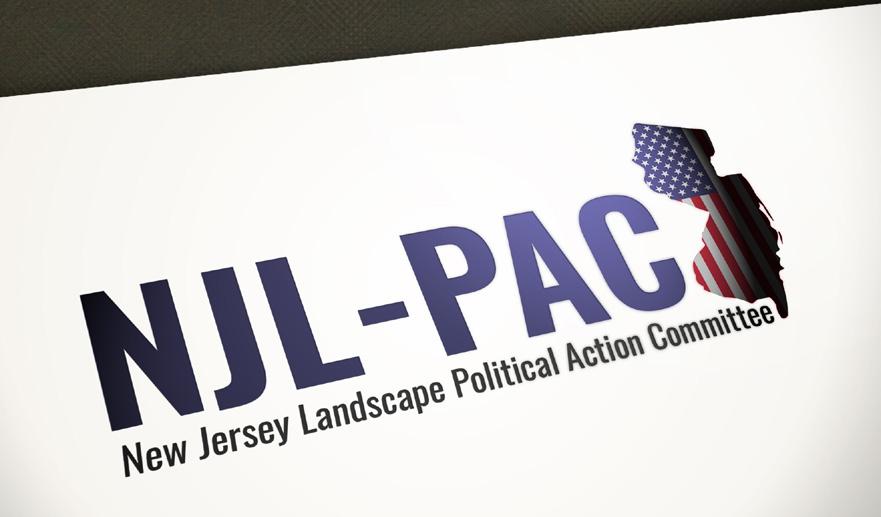
11 minute read
2021: A Fine Year to Plant Natives
Feature Story 2021: A Fine Year to Plant Native
by Michael Macaulay for Richard A. McCoy Horticultural Services, Inc.
2020 reminded us that some things are out of our control. Instead of letting these things agitate us, let’s focus on the positive effect we can have when we empower ourselves and take action where we can. Today, we’ll remind you of our favorite one - planting natives. A native garden is an achievable way to beautify your surroundings and benefit your local ecology. Let’s stop making ‘the environment’ an abstract and distant concept.
Step outside your front door, and there it is! Suburban and industrial sprawl has caused widespread habitat loss and fragmentation, and the rapid influx of pesticide use, alien ornamental plants and invasives are tangible reasons for why we need to collectively change our landscaping approach.
There’s No Shortage of Variety and Beauty
There’s native plants of various sizes, shapes, and colors for every season. If planted strategically, a native garden can provide vibrant beauty from early Spring to late Autumn, and food and nectar sources for native creatures.
For every non-native plant you may aesthetically desire for your landscape, there is an environmentally conscious alternative. Planting native is not about ignoring aesthetics.
Combining ecological consciousness with visual appeal is what we do at McCoy Horticultural. However, when visuals are isolated and trump ecology, we arrive at (unfortunately) the perspective of most landscape companies and homeowners, which disregards our ability, our responsibility, to play a direct, positive environmental role.
For details on specific natives for zone 6-7, see our Native Plant at a Glance posts. You can also find some valuable native plant directories in the Resources section of our website.
They’re Naturally Low Maintenance
Because natives have evolved for your region, once established they are highly resistant to conditions and phenomena that nonnatives may struggle or perish under.
This means it’s extremely rare for an established native to need replacement if planted properly, granted it’s culturally suited for its placement in the landscape (e.g. shade/sun levels, not too crowded, etc.). It will also be unnecessary to fertilize or periodically water your natives at this point.
Insects and Alien Plants Do Not Mix
One of the most fascinating and overlooked aspects of natives is the degree to which specialization between them and cornerstone insect/pollinator species plays a role in environmental functions. As Doug Tallamy cites in his book Nature’s Best Hope, “most insect herbivores, some 90 percent in fact, are diet specialists - host-plant specialists that are restricted to eating one or just a few plant lineages” ([Berynays and Graham 1998, Forister et al. 2015]” (100). A common example is the relationship between the widely loved Monarch and their host-plant milkweed, the only plant that Monarch caterpillars eat in their larval stage.



Help Mother Nature and She Will Help You
You may say that nature will take care of herself, but as stewards of the land it is our duty to remind you of your ability to help nature along in its balancing processes. It is undoubtable that every native garden does facilitate positive ecological action by bringing together essential insect species with their specific host plants and providing food and shelter sources for birds and small mammals. When you provide for your local ecology, it provides for you - you’ll have a plethora of aesthetic and sonic beauty added to your yard, you’ll save money in water and hours worked, and (especially if you stop using toxic pesticides,) you’ll also reap the benefits of avoiding some common mosquito, pest, and fungal issues in allowing and assisting nature’s balance to take effect.
GET OUTSIDE AND PLANT SOME NATIVES IN 2021! Visit Homegrown National Park's website at www. homegrownnationalpark.com to #GETONTHEMAP with your native garden! Originally Published Dec. 31, 2020 on ecologymatters.net.
Sources: https://www.naturalshore.com/native-plants/, Bringing Nature Home by Douglas Tallamy, Nature’s Best Hope by Douglas Tallamy
This yard in Manasquan, NJ turned from a sterile lawn to a native plant oasis in less than a year.


Legislative Update from the NJL-PAC

Due to ongoing legislative issues that we continually face in the landscape and green industry, the New Jersey Landscape Contractors Association officially launched the New Jersey Landscape Political Action Committee (NJL-PAC) this past fall and as you may be aware hired MBI Gluckshaw to help us with our lobbying efforts. Below is an account of recent activities in the legislative arena written by Rick Wright of MBI Gluckshaw. - Gail Woolcott, Executive Director
Office of the Governor – COVID-19 Business Shutdowns – March & April 2020
From mid-March to mid-April, MBI worked on a daily basis in an effort to keep NJLCA members updated on Governor Murphy’s Executive Orders that impacted the landscape industry, particularly EO’s 113 & 122 that shut down non-essential businesses, followed by all construction in New Jersey. Working with NJLCA Executive Director Gail Woolcott, Scot Mackey & I communicated with Justin Braz, Deputy Chief of Staff, Office of the Governor, regarding the need to keep the landscape industry to the furthest extent possible, open for business and labeled as an “essential industry” in the state. Those efforts included almost daily texts, calls and emails as the Governor issued more stringent business shutdown Executive Orders from late March to mid-April as COVID-19 rates dramatically increased in the state. Working with Executive Director Woolcott, when MBI learned that Governor Murphy intended to shut down all construction in the state in mid- April, we worked with Deputy Chief of Staff Braz by sending him a complete list of services provided by NJLCA members and going over that list with Justin to determine what items on the list could be deemed “essential “under Governor Murphy’s EO-122. This collaborative effort between MBI and the Governor’s Office on behalf of NJLCA members allowed many landscape contractors in the state to continue working with minor restrictions, thereby saving them millions of dollars in business during the busy spring, summer and fall months in 2020. As the pandemic increases into the 2nd wave that scientists predicted over the summer, MBI continues to be on the lookout for any indication of new restrictions that could negatively impact NJLCA members which includes watching and providing reports to ED Woolcott following Governor Murphy’s weekly COVID -19 press events each week.
Legislative Tracking & Lobbying
Since becoming your lobbyist earlier this year, MBI is tracking 224 legislative bills that have been introduced in both the State Assembly & Senate. This legislation encompasses many issues that could impact the landscape industry including taxes, health care changes and mandates, licensure as well as environmental initiatives and regulations, legislation dealing with providing assistance to businesses impacted by COVID-19, vehicle tracking legislation, prompt payment of construction contacts and restrictions on local government contracting. To track this legislation, MBI reviews every bill introduced in the Legislature that we believe impacts NJLCA members. Following our review, we forward this info to NJLCA Executive Director Woolcott for her comments. Once a bill is deemed important to the organization, it is tracked and MBI staff will monitor and contact the bill’s sponsor, Governor’s Office and/or Legislative staff in both the district offices and State House to support, seek amendments or oppose during the legislative process. This process has become harder during the COVID-19 Pandemic since the Legislature is working remotely and all legislative committee hearings and voting sessions do not allow members of the public into the State House, including lobbyists.
Regulation Tracking
On behalf of the NJLCA, MBI reviews all proposed rules & adoptions of regulations that impact our state’s irrigation industry. MBI staff review and track rule proposals and adoptions and forward this information to Gail for comment.
New Jersey Landscape Contractors Association PAC Reporting to the NJ Election Law Enforcement Commission
On behalf of the NJLCA, Director Woolcott has worked with MBI staff to set up a system in which our firm will file all reports and filings with the New Jersey Election Law Enforcement Commission for the organization’s political action committee (PAC).
Statewide US-DOL Approved Apprenticeship Program
Due to legislation that passed during the 2018-2019 Legislative Session, certain businesses seeking qualification of public work for state, county and municipal contracts in New Jersey are now required to have a US Department of Labor (US DOL) approved Registered Apprenticeship Program. Working with ED Woolcott, MBI set up several conference calls this year with representatives from the NJ Department of Labor & Workforce Development (NJDOLWD) and US DOL regarding the necessary steps needed to set up an approved NJLCA statewide apprenticeship program for its members. The NJLCA program is now up and running.

In Memory of Carl J. Torsilieri
Carl Joseph Torsilieri passed away peacefully on February 17th at the age of 93. Carl was born on February 4, 1928 in Stirling, NJ in the house built by his brick mason father. “Sonny” was the only child of Joseph A Torsilieri and Florence L (Montegari) Torsilieri. Married to Lois J (Mindnich) Torsilieri for 56 years, they were high school sweethearts at Bernards High School in Bernardsville, NJ where Carl was voted best looking and "Lo" best dressed and best dancer. Together they had four children: Carla Parkinson (David), Guy (Beverly), Marc (Susan) and Dean (Christine). There are thirteen grandchildren: Jacie and Bart (Carla), George and Carl (Guy), Sam, Liza and Phoebe (Marc), August, Geneva, Piper, Holly, Willow and Remy (Dean). Carl was preceded in death by his son Marc in 2007 and his wife Lois in 2009.
Carl served in the US Navy as a Petty Officer between WWII and the Korean War from 1946 to 1948 on a Liberty Ship. He spent some off hours crafting items like candle holders and lamps out of spent bullet casings, now family heirlooms.
As a young man Carl cultivated and sold dahlias from a greenhouse on the site that is now the Stirling, NJ ShopRite. Before venturing out on his own, he was a partner in Millington Nurseries in Millington, NJ. In 1968, Carl started Torsilieri, Inc, a landscape contracting firm, out of his home on Douglas Road in Far Hills, NJ. Later the company moved to the property which is now the current location of Torsilieri Inc. at 265 Main Street in Gladstone, NJ.
All three of his sons, Guy, Marc & Dean eventually helped him grow the business into a large multifaceted company. Torsilieri, Inc is well known for cutting down, bringing in, setting up and taking down the Rockefeller Center Christmas Tree; a very specialized job that they have done for 38 years. In recent years the company has also gained a reputation for moving and erecting large fine art pieces in New York City and other locales. Today the Torsilieri Inc signature white trucks can be seen throughout New Jersey, New York and the tri- state area.
Carl drove to the office each day even after he “retired” until he turned 90. He enjoyed picking up lunch and sharing it with his sons. After serving on the Board of Education and Town Council, Carl served as Mayor of the Borough of Far Hills for four terms, from 1995 until 2010. Keeping it in the family, when he ran for office in 1994 his daughter, Carla, was his campaign manager. While he was on the Board of Education he was instrumental in closing the small elementary school in Far Hills and merging the students into the Bedminster school system.
He was widely respected for his fairness and clear thinking. As a friend and former mayor of a neighboring town said of Carl, “He epitomized the friendly outlook of a responsible elected official”. Carl was a resident of Far Hills for 62 years.
An avid horse racing enthusiast, Carl and his partner, Orlando Di Rienzo (Dee), owned many winning thoroughbreds starting in the 1970's. In the 1990's they were joined in the partnership by Carl's son, Guy. They raced under the stable name Coppertree Farm at many race tracks including Belmont, Saratoga and Keeneland as well as Steeplechase meets up and down the East Coast. Among their many impressive wins was a spectacular hometown victory at the Far Hills Race Meeting in 2001 with Quel Senor in the Grade One Breeder’s Cup Steeplechase.
Carl was a loyal New York Yankees baseball fan and rarely missed a televised game. In the 1970’s Carl was a dominant member of the Somerset Hills bowling league. He was a formidable poker and bocce player, usually half of the winning team of the tournament at the annual Torsilieri Pig Roast.
Known for sporting his signature full brimmed “Akubra” hats, Carl was friendly to everyone, told great stories and was a good listener. Well after his retirement he was still addressed as “Mayor” by almost all who knew him. In his later years Carl made a cherished friend in Christine Petruzzell who accompanied him to family events and kept Carl busy going to Cape May, out to dine, movies, and concerts.
Carl will be missed by many family members and friends who loved him and associates who admired and respected him.
A memorial service and celebration of life will be held for Carl at a future date to be determined.

Memorial contributions in Carl’s honor can be made to the Far Hills Race Meeting Association (P.O. Box 617, Far Hills, NJ 07931). Donations will benefit The Steeplechase Cancer Center “Patient Assistance Fund”, Crossroads4Hope (formerly the Cancer Support Community of Central New Jersey) and the Pluckemin Presbyterian Church Medical Equipment Ministry.











